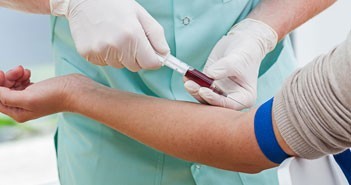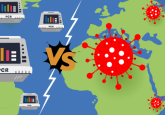Researchers develop the first diagnostic assay to test suspected cases of novel coronavirus

A team of researchers based at the German Center for Infection Research (DZIF) at Charité – Universitätsmedizin Berlin (Germany) have developed a new diagnostic assay to detect the 2019 novel Chinese coronavirus (2019-nCoV). The assay protocol has been published as WHO interim guidance to be used in laboratory testing for suspected human cases of 2019-nCoV.
2019-nCoV can cause severe pneumonia, with 41 confirmed cases as of 15 January 2020. Since first emerging in Wuhan (China), two confirmed cases of 2019-nCoV have been detected outside of China, in Thailand and Japan.
The new diagnostic assay developed by a research group led by Christian Drosten (Director of the Institute of Virology, Charité – Universitätsmedizin Berlin) makes use of real-time reverse-transcription PCR. The assay is the first diagnostic test for 2019-nCoV that has been made publicly available.
According to WHO interim guidance, collection of respiratory material and serum for serological testing is recommended to support identification of the true agent once a serological assay is developed and becomes available.
Study lead Christian Drosten explained: “Now that this diagnostic test is widely available, I expect that it won’t be long before we are able to reliably diagnose suspected cases. This will also help scientists understand whether the virus is capable of spreading from human to human. This is an important step in our fight against this new virus.”
Sources: www.charite.de/en/service/press_reports/artikel/detail/researchers_develop_first_diagnostic_test_for_novel_coronavirus_in_china/;
www.who.int/health-topics/coronavirus/laboratory-diagnostics-for-novel-coronavirus;
www.ecdc.europa.eu/en/publications-data/laboratory-testing-suspect-cases-2019-ncov-using-rt-pcr






